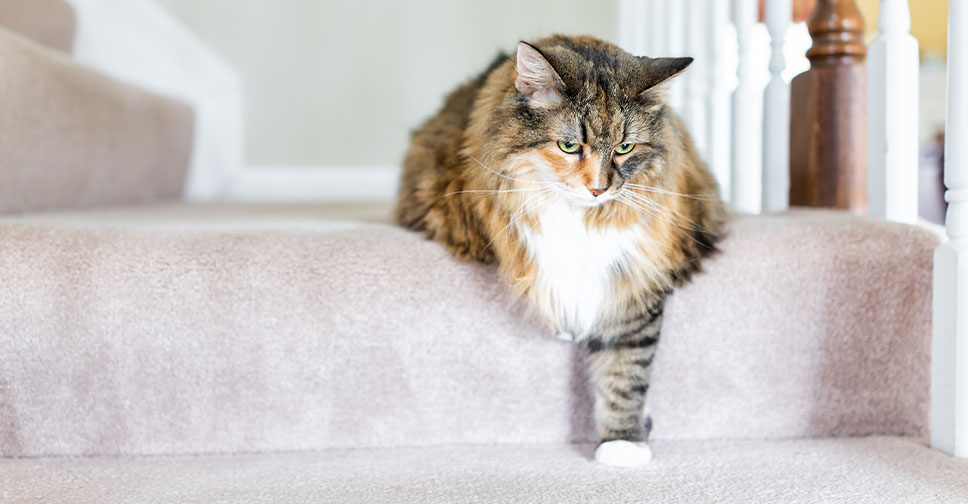
10 Health Tips For Arthritis in Dogs & Cats
Dogs and cats can become arthritic, particularly as they age, in the same way as people can. There are different forms of arthritis but the most common one in animals, like in humans, is Osteoarthritis or “wear and tear” arthritis.
The only way to 100% know that it is arthritis is by taking radiographs (x-rays), but often we make a presumptive diagnosis based on history and clinical exam.
Sometimes, owners believe their animals are “just getting old” but arthritis can actually be quite painful. Luckily we are able to offer a range of options to help our golden oldies to age gracefully and in comfort.
1. Cartrophen & Zydax (Pentosan Polysulfate)
This is an excellent injectable medication that helps to reduce inflammation, stimulate more joint fluid production (more lubricant within the joint) and stimulate blood flow in the cartilage which helps to repair it. Pentosan is initially given once weekly for 4 weeks, and the course is repeated every 6 months. If the effects of the injections are not lasting for the whole 6 months, your pet can also receive them on a monthly basis.
2. Ongoing non-steroidal anti-inflammatories (Carprofen, Meloxicam) & other medications
These are daily anti-inflammatories that can provide good pain relief. They do not help the joints themselves, but they do reduce the inflammation and hence help with pain.
3. Monoclonal Antibody therapy
A new monthly injection for cats (Solensia) and dogs (Beransa) has become available with good results. Monoclonal Antibody therapy targets a source of the pain pathway associated with arthritis and has very few side effects. These injections have been available for 2 years in Europe and have very positive results.
4. CBD oil
We stock CBD oil and many owners have reported good results from using this daily.
5. Laser therapy
We are lucky to have a laser machine in the clinic. This is noninvasive and doesn’t require sedation. It is done a series of 6 sessions over 3 weeks. Please ask our staff for further information and costs.
6. Supplements
There are quite a few supplements on the market that can be helpful in some animals – we stock Glyde and green lip mussel extracts and our staff are happy to discuss these with you.
7. Food
For dogs, there is a veterinary prescription diet called Hills J/d that has some good clinical data behind it for improving arthritis. Please chat to our staff about this option. Most dogs love it, but there is a money back policy for those who don’t.
8. Weight loss
For animals that are overweight, the importance of weight loss is huge (pardon the pun!). Extra weight puts extra strain on joints. There are weight loss diets available and it is always free to regularly weigh your animal to track their weight.
9. Referral to a physiotherapist and/ or acupuncturist, hydrotherapy
Whilst physiotherapy, hydrotherapy and acupuncture can’t repair the joints themselves, there is good evidence that these techniques can help with pain relief and improve mobility and quality of life.
10. Exercise modification
Slowing down and avoiding excessive exercise can have huge impact on joint/muscle stability. Little things like avoiding throwing the ball, trying to control zoomies and helping them up and down stairs can help to lessen painful episodes.
